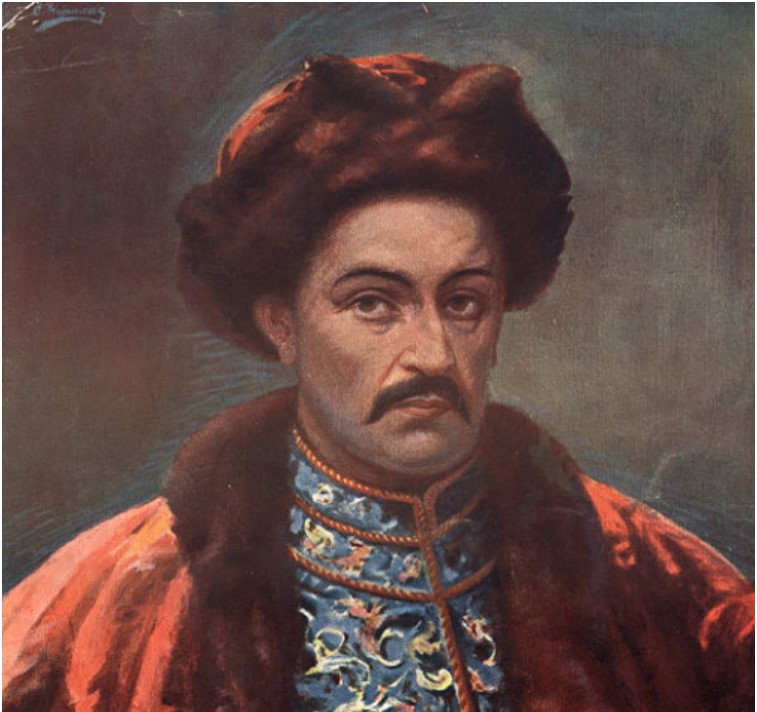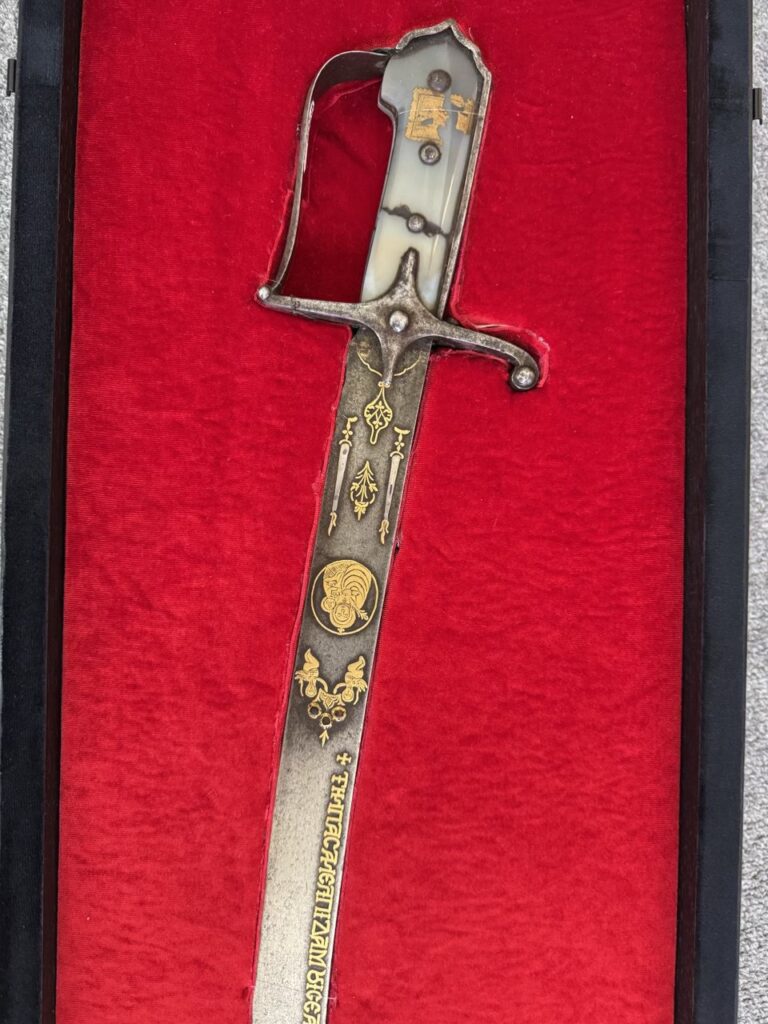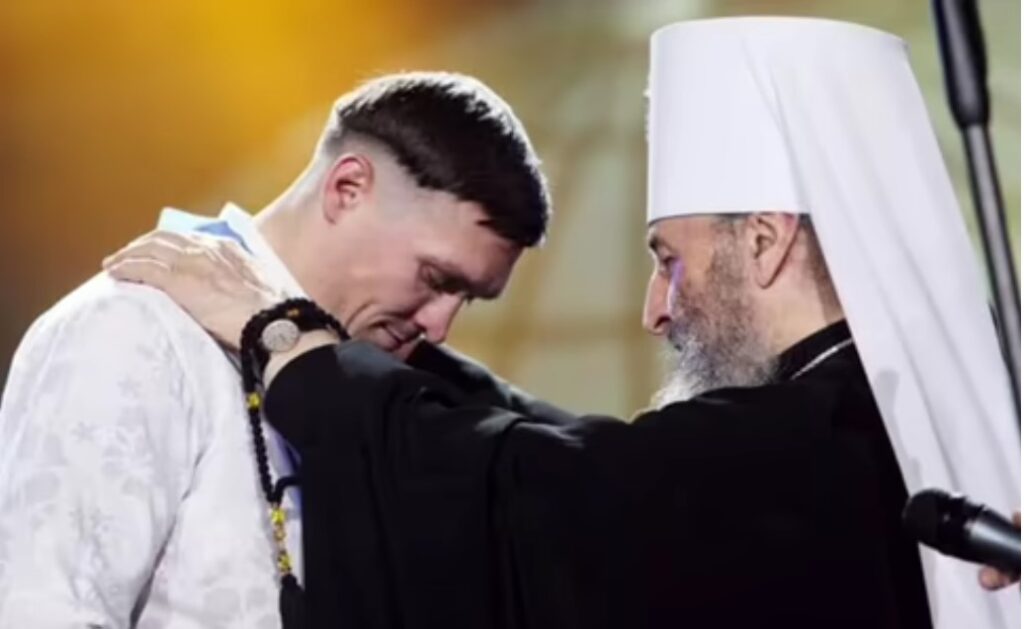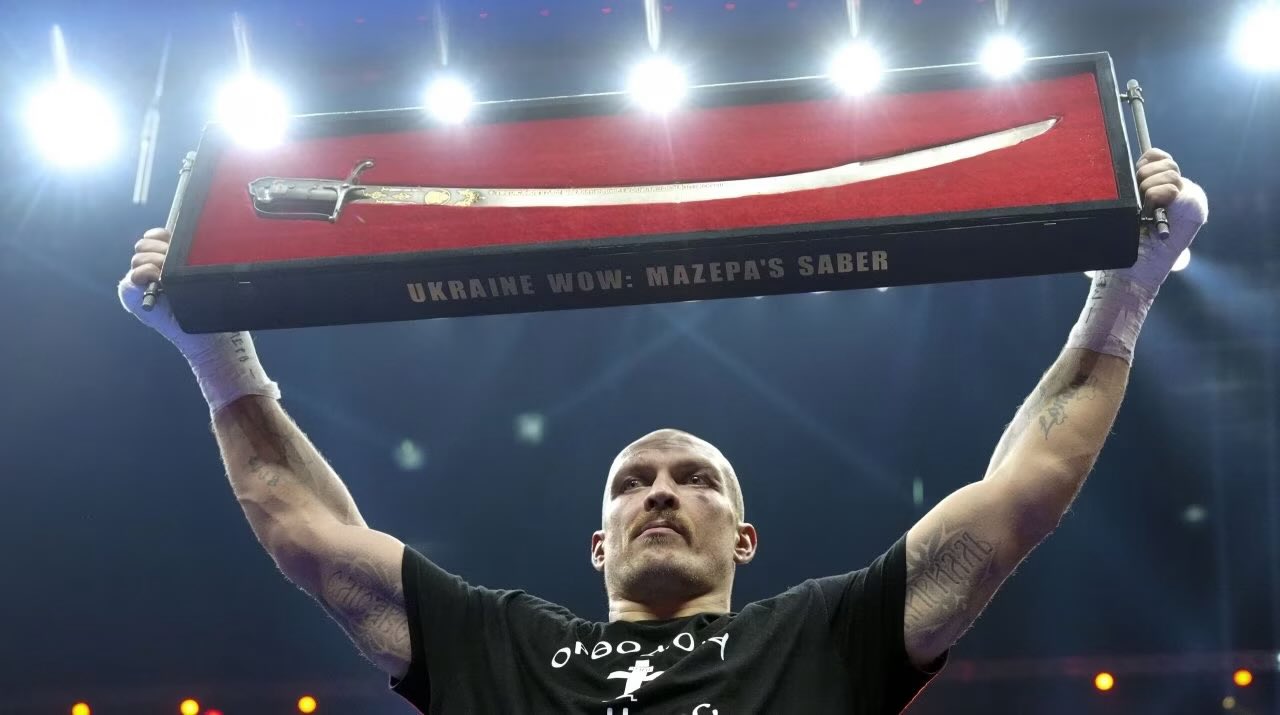In a moment charged with historical symbolism, heavyweight champion Oleksandr Usyk celebrated his victory over Tyson Fury in Riyadh by raising the 300-year-old saber of Ivan Mazepa - a Ukrainian leader who, like Usyk, defied Russian imperial ambitions. The unanimous decision (116-112) not only secured Usyk's WBC, WBO, WBA, and IBO titles but transformed a sporting triumph into a powerful statement about Ukrainian resistance.
Usyk, now 23-0 with 14 knockouts, has consistently woven Ukrainian identity into his boxing career. From his traditional Cossack haircut (chub) to his ring-walk soundtracks featuring Ukrainian folk songs, his persona embodies both his nation's heritage and its current struggle. His choice to brandish Mazepa's saber - a leader condemned as a traitor by Russia for seeking Ukrainian independence - resonates deeply amid today's Russian invasion of Ukraine.
After the victory, Usyk raised the famous saber of Hetman Ivan Mazepa, a historic figure who fought for Ukraine’s independence against russia 300 years ago.
First of all, it is a reminder of the three centuries long russian aggression against Ukraine. This is for those… pic.twitter.com/AkmvRekMbv
— Roman Sheremeta 🇺🇦🇺🇸 (@rshereme) December 22, 2024
Why Usyk's gesture shocked Russia
Like Mazepa before him, Usyk occupied a complex position in Russian cultural imagination. Given his Orthodox faith and Crimean origins some Russians hope to make him a potential symbol of Ukrainian loyalty to Moscow - until he shattered that narrative with Mazepa's saber.
Taking to Instagram after his victory, Usyk wrote:
"The authentic saber of the remarkable Ukrainian Hetman Ivan Mazepa. It was an honor for me to hold this unique artifact, over 300 years old. For centuries, Russia has tarnished the name of Hetman Mazepa. Now that name is returning to the global media sphere and will receive the recognition it deserves. This is just the beginning!"
By choosing Mazepa's weapon - a symbol of Ukrainian resistance - Usyk aligned himself with a centuries-old struggle for independence. The gesture resonated powerfully across both nations: in Ukraine as an act of defiance, in Russia as another betrayal by a figure they considered close to them.
Ivan Mazepa’s fight for Ukraine
Behind the saber lies a complex historical figure who mirrors Ukraine's centuries-long struggle for independence. Ivan Mazepa ruled Ukraine from 1687 to 1709, transforming Kyiv-Mohyla Academy into Eastern Europe's premier intellectual center and funding the construction of over 45 churches and Cathedrals. Under his patronage, the academy attracted scholars from across the continent, establishing Ukraine as a bridge between Western European and Orthodox intellectual traditions. His capital Baturyn became a symbol of Ukrainian autonomy, protected by fortified walls and enriched by extensive patronage of arts and education.

While formally loyal to Russian Tsar Peter I, Mazepa seized the Great Northern War as an opportunity to secure Ukrainian independence through an alliance with Sweden's Charles XII. This decision earned him eternal condemnation in Russia, where the Orthodox Church pronounced anathema - a formal ecclesiastical curse that remains unlifted today.

Western Europe, however, missed this political dimension entirely. Lord Byron's poem "Mazeppa" transformed the statesman into a romantic hero, supposedly punished for an affair with a Polish noble's wife by being tied naked to a wild horse and sent into the steppes. The tale, while dramatic, ignored basic geography - Ukraine's territory was densely populated with settlements, making such an uninterrupted journey impossible. As philosopher Volodymyr Yermolenko notes, this myth reveals Europe's historical blindness to Ukraine's political realities.
Mazepa's bid for independence ended tragically. Russian forces razed Baturyn, massacred its population, and consolidated imperial control over Ukraine. Yet his legacy - like the saber Usyk raised - endures as a symbol of Ukrainian resistance to Russian domination.
Mazepa’s saber became a timeless symbol
The saber raised by Usyk is a rare artifact, one of only three known Mazepa blades surviving today. Crafted in the late 17th century, it started as Mazepa's gift to commander Savych, rewarding exceptional service.

The weapon's preservation was secured when Savych's family sold it to Vasyl Tarnovskyi, a dedicated collector focused on preserving Ukrainian historical artifacts, before reaching its current home in the Chernihiv Regional Historical Museum. The other two Mazepa sabers, as historian Viktor Tryhub documents, reside in Russia - an ironic distribution reflecting the divided legacy of the Hetman himself.
Usyk’s saber gesture could spark church reform
The saber gesture carried special weight within Ukraine's religious sphere. The Ukrainian Orthodox Church (UOC), historically a branch of the Russian Orthodox Church (ROC), still maintains its centuries-old anathema against Mazepa - a curse that symbolizes its deep historical ties to Moscow.
During the Soviet era, the UOC functioned simply as part of the ROC in Ukraine, serving as Moscow's sole permitted Christian denomination while other Ukrainian churches faced persecution and bans. After independence, the UOC was gradually superseded by other restored Ukrainian churches, though some believers remained loyal to UOC, including prominent figures like Usyk. He maintained close ties with UOC leader Metropolitan Onufriy, which helped preserve Usyk's popularity in Russia even after the 2022 invasion.

The UOC's share declined sharply after Russia's full-scale invasion - from 18% of Ukrainians representing UOC in 2021 to only 4% now, while 56% now follow the independent Orthodox Church of Ukraine (OCU) and other orthodox churches, according to the Kyiv International Institute of Sociology. Though the UOC declared independence from Moscow after the invasion, church experts note this separation remains incomplete, with some clergy, including Metropolitan Arsenii, documented spreading Russian propaganda and conducting sabotage activities.
In 2023, Usyk expressed his hope for reform:
"I want our UOC to be cleansed of the unworthy individuals within it. These are not priests, but people who came to work on the enemy's orders—the Russian Federation."
By raising Mazepa's saber, Usyk challenged not just Russian political control but also the church's centuries-old condemnation of Ukrainian independence, suggesting that true sovereignty requires confronting both.
Read more:
- Oleksandr Usyk defeats Tyson Fury: Inside Ukrainian champion's perfect boxing
- Oleksandr Usyk became the first absolute heavyweight champion of the world in the 21st century
- Ukrainian boxer Oleksandr Usyk devotes his world title win to war-torn homeland

